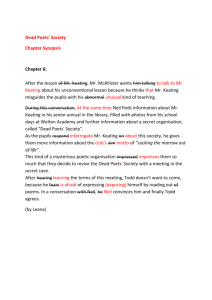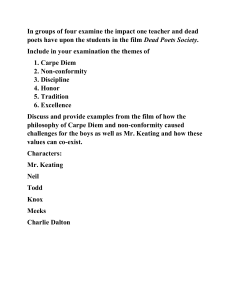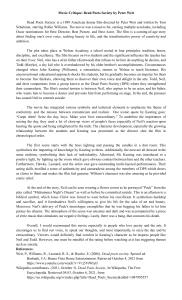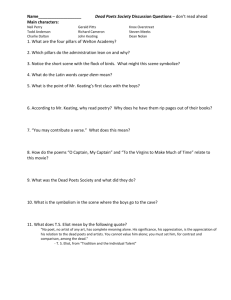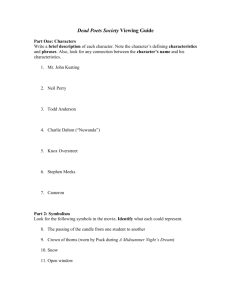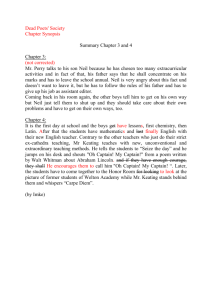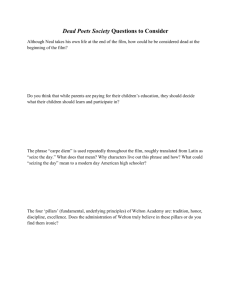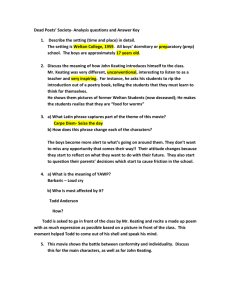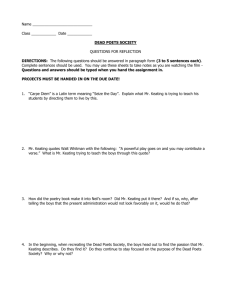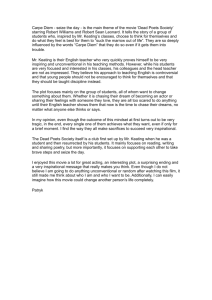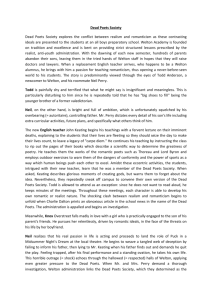Dead Poets Society – Reflection Questions2 - Christian
advertisement
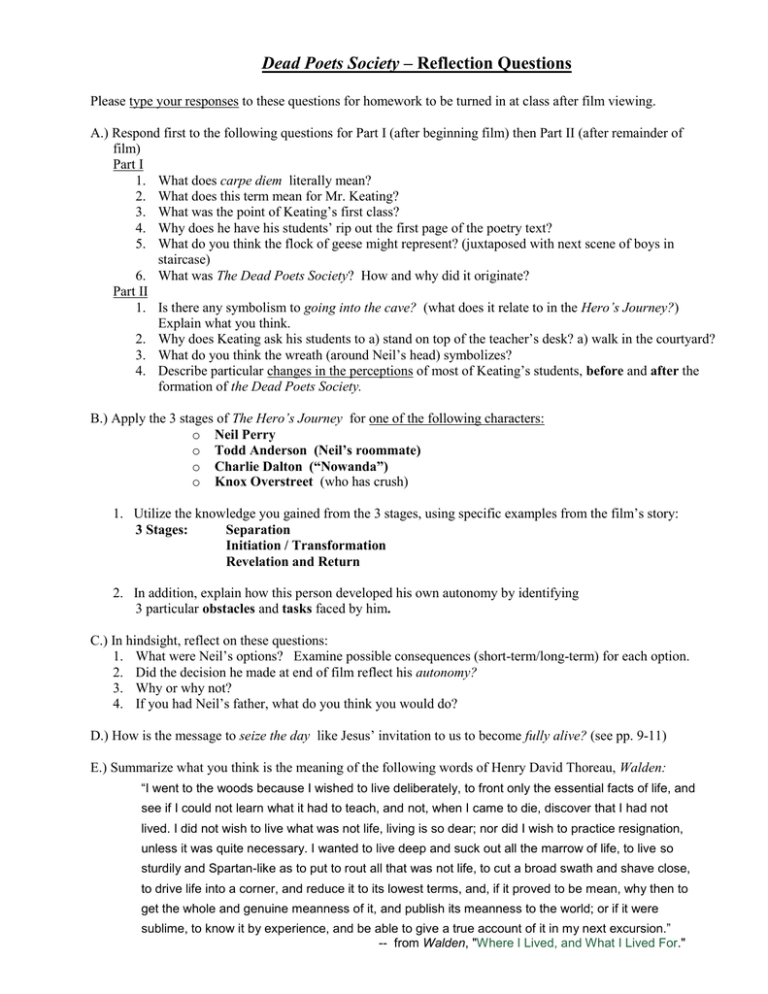
Dead Poets Society – Reflection Questions Please type your responses to these questions for homework to be turned in at class after film viewing. A.) Respond first to the following questions for Part I (after beginning film) then Part II (after remainder of film) Part I 1. What does carpe diem literally mean? 2. What does this term mean for Mr. Keating? 3. What was the point of Keating’s first class? 4. Why does he have his students’ rip out the first page of the poetry text? 5. What do you think the flock of geese might represent? (juxtaposed with next scene of boys in staircase) 6. What was The Dead Poets Society? How and why did it originate? Part II 1. Is there any symbolism to going into the cave? (what does it relate to in the Hero’s Journey?) Explain what you think. 2. Why does Keating ask his students to a) stand on top of the teacher’s desk? a) walk in the courtyard? 3. What do you think the wreath (around Neil’s head) symbolizes? 4. Describe particular changes in the perceptions of most of Keating’s students, before and after the formation of the Dead Poets Society. B.) Apply the 3 stages of The Hero’s Journey for one of the following characters: o Neil Perry o Todd Anderson (Neil’s roommate) o Charlie Dalton (“Nowanda”) o Knox Overstreet (who has crush) 1. Utilize the knowledge you gained from the 3 stages, using specific examples from the film’s story: 3 Stages: Separation Initiation / Transformation Revelation and Return 2. In addition, explain how this person developed his own autonomy by identifying 3 particular obstacles and tasks faced by him. C.) In hindsight, reflect on these questions: 1. What were Neil’s options? Examine possible consequences (short-term/long-term) for each option. 2. Did the decision he made at end of film reflect his autonomy? 3. Why or why not? 4. If you had Neil’s father, what do you think you would do? D.) How is the message to seize the day like Jesus’ invitation to us to become fully alive? (see pp. 9-11) E.) Summarize what you think is the meaning of the following words of Henry David Thoreau, Walden: “I went to the woods because I wished to live deliberately, to front only the essential facts of life, and see if I could not learn what it had to teach, and not, when I came to die, discover that I had not lived. I did not wish to live what was not life, living is so dear; nor did I wish to practice resignation, unless it was quite necessary. I wanted to live deep and suck out all the marrow of life, to live so sturdily and Spartan-like as to put to rout all that was not life, to cut a broad swath and shave close, to drive life into a corner, and reduce it to its lowest terms, and, if it proved to be mean, why then to get the whole and genuine meanness of it, and publish its meanness to the world; or if it were sublime, to know it by experience, and be able to give a true account of it in my next excursion.” -- from Walden, "Where I Lived, and What I Lived For." o What insights do you have for your own life after viewing Dead Poets Society? http://images.google.com/imgres?imgurl
